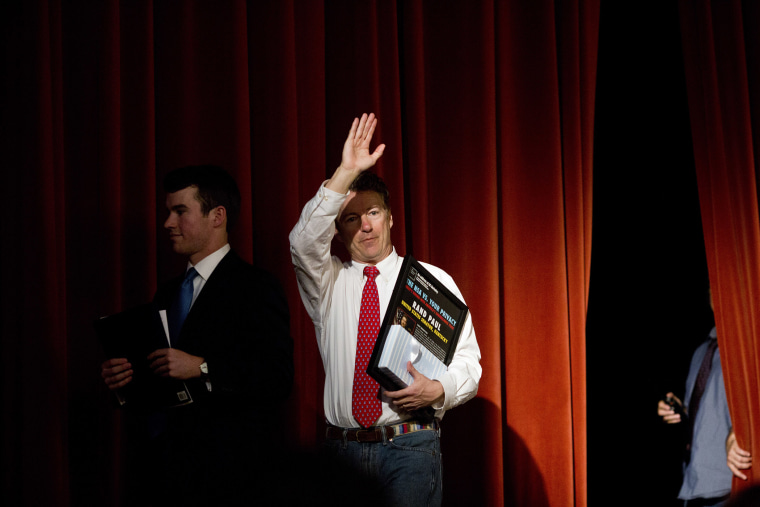Robert Draper recently generated some interesting discussion in the political world, asking, "Has the 'Libertarian Moment' finally arrived?" There's fresh evidence that the answer is, "Probably not."
The Pew Research Center's Jocelyn Kiley published a report yesterday that found while many Americans don't really know what "libertarian" means, the more striking detail is that Americans who self-identify as libertarian don't have views that differ much from the rest of the public.
Self-described libertarians tend to be modestly more supportive of some libertarian positions, but few of them hold consistent libertarian opinions on the role of government, foreign policy and social issues. [...] In some cases, the political views of self-described libertarians differ modestly from those of the general public; in others there are no differences at all.
As Ed Kilgore noted, the Pew Research Center's report focused on the views of actual libertarians -- those who self-identify as adherents and know what the term means -- which meant stripping away some Americans who think they're libertarians but aren't. (Some respondents apparently confused the word with "Unitarian," which struck me as kind of hilarious.)
Regardless, the results were unexpected. Nearly four-in-ten libertarians see government aid to the poor as worthwhile. A slightly higher percentage believe government regulation of business is necessary to protect the public interest. A slightly higher percentage still agree that "it is best for the future of our country to be active in world affairs."
In some cases, self-identified libertarians are less in line with libertarian principles than the public at large, which suggests we're looking at a political movement with a coherence problem.
It reminded me of a recent quote from Sen. Rand Paul (R-Ky.), arguably the highest-profile member of the GOP's libertarian wing.
From Draper's piece: "Some people are purists, and I get grief all the time -- all these libertarian websites hating on me because I'm not as pure as my dad. And I'm putting restrictions on foreign aid instead of eliminating foreign aid altogether. And I'm like: 'Look, guys, I'm having trouble putting these restrictions on, much less eliminating them! So give me a break!' "
But in practice, it seems the "purists" aren't entirely representative of Americans who consider themselves libertarians. The "libertarian websites" may be "hating on" Rand Paul, but if the Pew research is accurate, we're talking about a small sliver of the overall population.
Maybe the movement just needs more time? Even Rand Paul himself, who claims to support libertarian principles, opposes marriage equality, opposes many key reproductive rights, and has flip-flopped on some of the positions he embraced as recently as a year ago.
In other words, even libertarian leaders may not yet have a firm grasp on what libertarian is going to be all about.
In the meantime, though, it's hard to know what to make of the prospect for a "libertarian moment." As Aaron Blake summarized, "[O]n the whole, being libertarian means erring on the side of individual liberty over government regulation and expansion. On all of these measures, libertarians as a whole are pretty much tucked nicely inside the political mainstream -- so much so that they almost look like political moderates."
